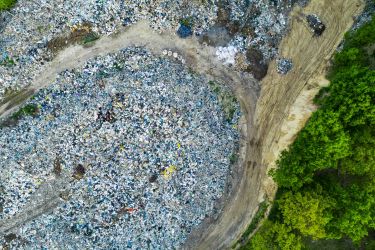Pollution

Environment
Analysis
Algal blooms are waging chemical warfare in our oceans
South Australia’s oceans have become battlegrounds, as once benign algae unleash a toxic chemical assault on marine life

Politics & Society
Opinion
6 ways good climate policy helps your wallet and your health
Good economic and health policies depend on good climate policy, and the earlier we implement them, the better for our future

Environment
Plant-based glitter outshines plastic alternatives
Glitter microplastics are commonly found in sewage sludge and wastewater, but a new sustainable glitter made from plant cellulose has been developed and has no impact on the environment

Environment
Opinion
Are cheap plastics the new tobacco?
Understanding ‘tobacco tactics’ can help fight the global plastic waste crisis, because the reality is plastic production is growing faster than we can recycle it

Health & Medicine
Daily decisions can reduce the carbon footprint of our health sector
The Healthcare Carbon Lab aims to reduce carbon emissions in our health sector by measuring carbon-emitting procedures and products, while still delivering quality care

Health & Medicine
Healthcare has a waste problem, but we can achieve net zero
Climate change is the biggest health issue facing the planet. Healthcare professionals deal with the outcomes, but can also be part of the solution

Environment
Australia’s electric vehicle future must be priced right
Changing electricity and road use pricing could help deliver the electric vehicle uptake needed for a Net Zero future

Environment
Under the Microscope
From diet to climate, our fertility is at risk
A childhood fascination with the family dairy farm led Associate Professor Mark Green to a career in reproductive biology

Environment
Decarbonising transport for our health
Transforming Australia’s carbon-intensive road transport system can also solve one of our most significant public health challenges

Health & Medicine
Opening the flood gates at Fukushima
Discharging radioactive water from the damaged Fukushima Daiichi nuclear power plant is avoidable, risky and potentially illegal